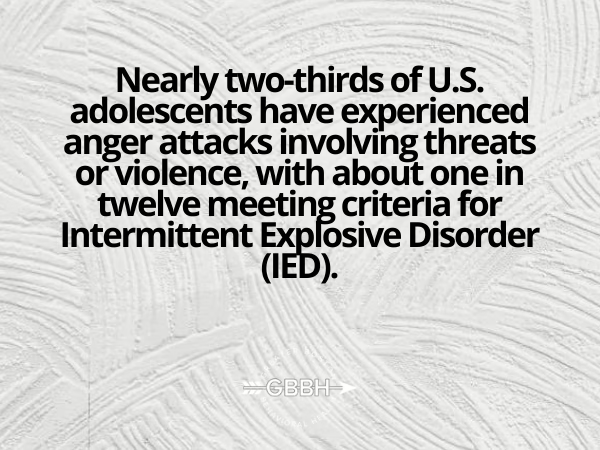Anger is a natural human emotion, but when it becomes overwhelming, destructive, or uncontrollable, it can severely impact mental health, relationships, and overall well-being. For individuals in recovery, anger management is a crucial part of maintaining long-term success. Learning to manage anger effectively can prevent relapse, improve communication, and promote emotional stability.
In this blog, we’ll explore the importance of anger management in recovery and the top strategies for successfully managing anger in the long term.
Understanding Anger in Recovery
Anger Management in Recovery is essential because many individuals in recovery struggle with unresolved emotions. Substance use can mask anger, and when drugs or alcohol are removed from the equation, these feelings can resurface with intensity. Without proper coping mechanisms, anger can trigger relapse and disrupt progress.
Participating in structured Mental Health Treatment Programs can be highly beneficial for those in recovery. These programs, available at a Mental Health Treatment Center in Boston, offer therapeutic interventions to help individuals navigate anger and other emotional challenges.
The Role of Anger Management in Recovery
Anger itself is not inherently bad, but when it is left unchecked, it can lead to harmful consequences such as:
- Increased stress and anxiety
- Damaged relationships with loved ones
- Higher risk of substance abuse relapse
- Difficulty maintaining employment
- Increased likelihood of legal issues
For individuals in long-term recovery, anger can become a trigger that leads to unhealthy coping mechanisms, including substance use, impulsive behaviors, or withdrawal from social support.
By developing effective anger management techniques, individuals can:
- Improve emotional regulation
- Strengthen problem-solving skills
- Enhance communication in relationships
- Reduce stress-related health risks
- Foster greater self-awareness
Effective Anger Management Strategies
1. Cognitive Behavioral Therapy (CBT) Techniques
CBT therapy is a highly effective approach for managing anger. It helps individuals recognize negative thought patterns and replace them with healthier responses. Some key CBT strategies include:
- Identifying anger triggers
- Challenging irrational thoughts
- Practicing relaxation techniques
- Developing problem-solving skills
CBT empowers individuals to take control of their emotions and reactions, making it an essential tool for long-term recovery success.
2. Dialectical Behavior Therapy (DBT) Skills
DBT therapy is another evidence-based approach that focuses on emotional regulation, distress tolerance, and mindfulness. People in recovery can benefit from DBT techniques such as:
- Mindfulness meditation to stay present and grounded
- Emotion regulation skills to manage intense feelings
- Distress tolerance techniques to cope with crises without resorting to substance use
DBT is particularly useful for individuals with a history of impulsive or self-destructive behaviors linked to anger.
3. Practicing Deep Breathing and Relaxation
Simple relaxation techniques can be incredibly effective in diffusing anger before it escalates. Deep breathing, progressive strong calmness, and guided imagining are all techniques that help to trigger the body’s relaxation response. A frequent way is the 4-7-8 breath technique.
Sit in the quiet room, take a deep breath through your nose, hold it for seven seconds and release it slowly through your mouth.
Repeating this cycle several times can help calm the nervous system and reduce anger levels.
4. Engaging in Physical Activity
Exercise is a powerful way to manage anger. Activities like jogging, yoga, strength training, and even dancing can help release built-up tension and stress. Physical movement triggers the release of endorphins, which improve mood and promote emotional stability.
5. Utilizing Healthy Communication Skills
Unresolved anger often stems from poor communication. Learning assertiveness skills can help individuals express their feelings without resorting to aggression. Some key communication strategies include:
- Using “I” statements (e.g., “I feel frustrated when…”)
- Active listening to understand others’ perspectives
- Setting healthy boundaries
6. Seeking Support from a Mental Health Treatment Center
If anger feels overwhelming, seeking professional help is essential. Behavioral health in Boston offers various resources for individuals struggling with anger management. Therapy, support groups, and Mental Health Treatment Programs provide the necessary tools and support for sustainable recovery.
Why Choose Greater Boston Behavioral Health?
Our Mental Health Treatment Center in Boston provides comprehensive mental health therapy programs that focus on emotional regulation, anger management, and long-term recovery success.
What We Offer:
- Personalized treatment plans tailored to each individual.
- Evidence-based therapies for anger management.
- A supportive and safe environment to promote healing.
- Flexible outpatient and group therapy options.
If you or a loved one is struggling with anger management in recovery, seeking help can improve relationships, enhance mental well-being, and support long-term success.
Conclusion
Managing anger is a lifelong process that requires patience, practice, and the right strategies. Whether through CBT therapy, DBT therapy, mindfulness practices, or professional support, individuals can develop healthier responses to anger and maintain long-term recovery success. If you or a loved one is struggling with anger issues, Greater Boston Behavioral Health offers comprehensive Mental Health Treatment Programs to help individuals regain control of their emotions and lead fulfilling lives.
Contact Greater Boston Behavioral Health today to start your journey toward emotional well-being and long-term recovery. Call us today at (888)278-0716 to learn more about our Anger Management Programs, DBT Therapy, and Mental Health Treatment Programs.
FAQ on Top Anger Management Strategies
Why is anger management important in recovery?
Uncontrolled anger can be a significant trigger for relapse, strained relationships, and emotional distress. Learning anger management techniques helps individuals develop healthier coping mechanisms, reduce stress, and improve emotional stability.
What are the best strategies for managing anger?
Effective anger management strategies include:
- Identifying triggers and recognizing emotional patterns
- Practicing mindfulness and relaxation techniques to regulate emotions
- Developing effective communication skills to express frustration constructively
- Engaging in physical activity to release built-up tension
- Building a strong support system for accountability and emotional guidance
How does therapy help with anger management?
CBT Therapy (Cognitive Behavioral Therapy) helps individuals identify negative thought patterns and reframe their responses to anger. DBT Therapy (Dialectical Behavior Therapy) focuses on emotional regulation, distress tolerance, and mindfulness to improve impulse control and decision-making.
What are the benefits of an anger management program?
Anger management programs offer:
- Professional guidance on emotional regulation
- Structured techniques for dealing with anger in a healthy way
- Support groups and therapy for peer connection and accountability
- Long-term strategies to maintain emotional balance and avoid relapse
When should I seek professional help for anger issues?
If anger affects your relationships, work, or mental health, or if it leads to aggressive behavior, substance use, or self-harm, seeking professional support through a Mental Health Treatment Program can help you regain control.
Does Greater Boston Behavioral Health offer anger management support?
Yes, we offer comprehensive anger management programs, including individual therapy, group therapy, DBT therapy, and CBT therapy, to help individuals develop healthier emotional regulation strategies.


